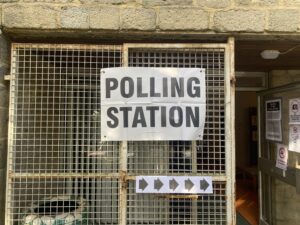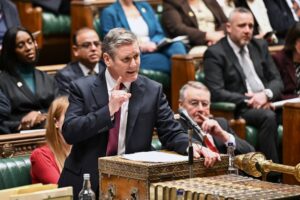Budget 2012: steady as we go nowhere for poorest places
‘Now’t round here. This town is going down the tubes’. So said an elderly participant in a focus group I conducted this week. We weren’t talking about granny tax or even the Budget, but exploring the future of places and neighbourhoods in a northern town. The Budget undoubtedly has some good things for the already winning local places and economies, but scant help to those which are losing. It’s a Budget which will accelerate regional and local economic division.
Beyond the detail, Budgets are an opportunity for the government to reveal, the economic direction of travel, and give us an idea of how they see the challenges of the day and the future. So faced with a economic uncertainty (what will happen in Eurozone?) and a global set of significant social and environmental challenges, many of us want to know where are we going as a country in a carbon constrained world? From a local economic perspective, I particularly want to know – what are the local jobs for the future? How are we going to tackle growing poverty and inequality? Where do local economies and neighbourhoods fit within UK plc?
But, these questions which are confronting our local places are inadequately dealt with in the Budget. Instead we get a focus on winners, hopeful thinking and voodoo economics. It all adds up to a steady as we go nowhere, sort of offering.
In my blog on the chancellor’s autumn statement, I indicated that the government was like a rabbit caught in the headlights. On the one hand a beaming light of a hellish deficit, and on the other the dimming light of sluggish growth. Then the chancellor dithered, continuing with fiscal austerity, while offering things like growing places fund, regional growth fund or local financial incentives such as tax increment financing and enterprise zones.
I thought then and still think, that these are generally insufficient for an economic reshape and sustainable economic growth and specifically, little help to some of the least competitive local economies and the lives of people in some of our neighbourhoods. You might think this might not matter, but without a focus on the poorest places and unemployment and poverty, we won’t see the much needed decline in welfare bill, which the government must see falling by £10bn by 2016.
Nevertheless, the chancellor is more assured in this Budget, and the direction of travel is clearer. Still hampered by austerity, it’s fiscally neutral and he has decided to put in place some measures which if luck goes the global economies way and the economic wind is in the right direction, will bear some fruit. For instance, it is doing a lot for businesses, which is significant, in some localities (where business base is strong, and the associated inputs, such as skills, infrastructure and competitiveness are favourable).
He is also clearly more strident when it comes to the biggest cities. He is putting faith in some of them (buoyed by the good work by minister for cities Greg Clark and deputy prime minister Nick Clegg around city deals). For instance the long fought city regional battles (especially in Greater Manchester), for more power and resources around issues such as the northern rail hub have now been (partially) won.
However, for many other non city regions and local economies, this Budget is mostly about incentives and competition for funds. It reveals a government which lacks economic development acumen and strategy. The government seems bereft of ideas as regards what to do in places where growth is a distant prospect. It has no thought for some local economies. No confidence in the local public sector and no insight into the importance of human capital, the community and voluntary sector and how these inputs can create new creative conditions for new economies and of course assist in tackling the spiralling welfare costs. So they resort to a focus on the winners by honing in on the areas (especially cities) which have the growth or seeds of growth already. As such, we must rely on failed trickle down and a rising economic tide to lift up the poorest.
Unless there is some significant change in the wider global economy, this winner takes all, piecemeal, lack of oomph and steady path to nowhere, is going to be bad for many. There are local places which are and will be losers in this Budget, where inequality will be perpetuated. The winning places will pull away, while the losers will fall away. Those places which are already filled with the ghosts of busted hopes – will receive a new intake, there will be growing poverty, unemployment, failing local economies and a fragile environment.
The government must start looking seriously at the systemic issues some local economies face and invest more in jobs, the future and the challenges we face. Focusing on some capital for infrastructure, some skills development (such as Manchester’s apprenticeship and skills hub), and some business tax breaks is not hefty enough. Government needs to look more seriously at growing local demand, local money in people’s pockets, wage levels and trickle up.
We need more local and regional banks, and a braver and more bullish approach to the banks the state already owns. We also need more public resources diverted to research and development and clean and green technologies. Strategies don’t create wealth, but they create a reliable context. We must have some form of industrial strategy, which gives a steer as to how this pans out sectorally and geographically across the UK. Above all, a winning future for the UK is predicated on giving hope and developing the losers so they can earn their way. This Budget merely extends the despair.
















